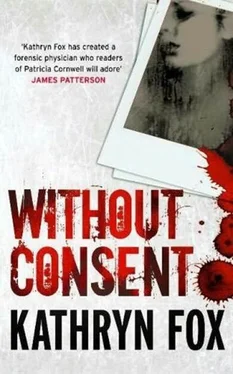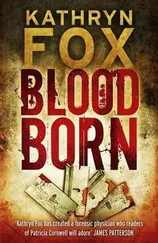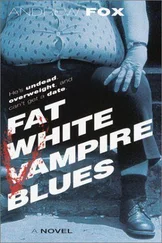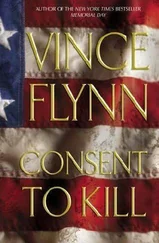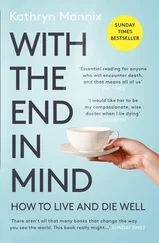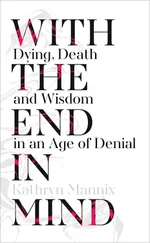The room went silent.
“Peter, do you have anything else to contribute?” Morgan Tully asked.
Peter Latham pushed his chair back, as if about to leave. “There’s not much left to say.”
“So we all appear to be in agreement,” Morgan said. “If he won’t retire, things could get rather unpleasant for him. As it is, we face countless reopening of cases and reviews of convictions.” She readjusted her scarf so the knot sat asymmetrically to the right.
Peter Latham hadn’t moved. Anya felt guilty at being the one chosen to review Alf’s decisions and wondered who else in the room saw her as the Judas Iscariot of pathologists.
Morgan glanced at Anya as if reading her mind. “Doctor Carney needs to realize that this hasn’t been a witch hunt, but a systematic review of countless cases he was responsible for. I’ve had pathologists in other states reviewing a dozen more cases selected at random, and their findings are pretty consistent.”
A tap on the door broke the tension. Alf Carney appeared, with a leather portfolio under one arm. Despite a dark charcoal suit and College tie, he looked unsure of himself.
Morgan stood up and checked her watch.
“We weren’t expecting you for another half-hour,” she said.
“I want this on my terms, not yours.”
The coroner indicated where she would like him to sit. He was already perspiring and barely acknowledged the others in the room other than with a quick scan.
Anya had wanted to leave by the time he arrived, but was now caught in the room. She studied his face. It appeared bloated and he looked like he hadn’t slept for days. For the first time she could remember, he wore polished black leather shoes instead of suede lace-ups. He’d taken today very seriously. He sat slowly, unbuttoning his jacket.
“Before you speak,” he croaked, then cleared his throat, “I’d like to say a few words.”
“By all means,” Morgan said.
He pulled out a number of pages from his portfolio and donned a pair of half-lens glasses from his pocket.
“I understand that in the last few months there have been numerous inquiries about my work over the last thirty-five years. It disappoints me that I had to hear about this from the medical grapevine, not from my most trusted and respected colleagues.”
Peter Latham didn’t move.
“With more litigious criminals, a glut of lawyers and a media ready to lynch anyone for the slightest perception of wrongdoing, I accept that someone who has been involved in some of the nation’s highest-profile cases would come under scrutiny. It’s not the first time.” He took a deep breath. “However, this appears to be motivated by something more personal, something deeper than defense lawyers appealing for their clients. It is saddening to learn that colleagues who have worked alongside me have, at the same time, been undermining my authority and accusing me of the worst failing in the medical profession-negligence.”
Morgan Tully interrupted. “We’re not at the Salem trials. You’re not invited here to defend accusations, Doctor Carney. Please understand that we all have your best interests at heart today.”
For the first time, Peter Latham spoke. “We’re all subject to peer review and quality assurance. None of us is immune, nor should we be. We may not be advocates for living patients, but we nonetheless need to ensure that we adhere to uniform standards.”
Alf Carney removed his glasses. “Let’s talk about professional standards, shall we? When I was a family doctor in country Victoria, there wasn’t anyone within a five-hundred-kilometer radius who would do police forensic work. Not a single member of our noble profession would help. When a young girl was raped and murdered in the middle of nowhere, the police had nothing without a post-mortem. Stupid me did it out of a sense of duty. Next thing I know, my practice is suffering because I’m suddenly the police surgeon, district pathologist and anything else the community needed. I took on a role nobody else wanted.”
He directed his comments toward all four in the room. “Pathology wasn’t fashionable, not like today. It was like some macabre secret society that voters didn’t need or want to know about.” He rubbed the bridge of his nose. “People didn’t even want you round to dinner any more.”
Morgan Tully remained businesslike. “We’re not here to discuss how you entered the field. We’re concerned with current scientific practice.”
Carney’s face flushed, highlighting the number of sun-spots on his ruddy complexion. The veins in his neck distended.
“As the country doctor, I helped retrieve bodies. Kids I’d known half their lives pulled from wrecks or mangled by farm machinery.”
He pointed to his breast-bone with both hands and spoke through almost clenched teeth. The emotion and pain he couldn’t hide made Anya want to rush out of the room. The man’s career was over, and he knew it.
“ I was the one who had to try to resuscitate the fractured bodies, then break the news to the family. Then I had to do the stinking autopsy as well. There was no technician to help out with the dirty work, no one to share on-call with. No one to discuss cases with. No such thing as debriefing and no one to ask how I felt after the funerals.” He wiped his forehead with a handkerchief. “So don’t lecture me about standards. I worked my tail off to study as much as I could to deliver the best bloody service I was capable of. Where were the College members when I needed support or time off? Sitting on their shiny arses in the cities.”
Seth Myer shifted. “We all did it tough back then. But times have changed and we’ve had to move with them. Everything we do has to be scientifically validated. We’re more answerable than ever before.”
“So that’s it,” Carney said. “I’m too old so I’m being hung out to dry. Clean out all the old fools and make way for the new.”
“That’s not it.” Peter Latham broke his silence. “No one disputes that you’ve been an outstanding provider of desperately needed services. But ongoing education is essential, and there is some concern that you may not be applying current best practice.”
“I thought better of you than this.” Carney stood. “Don’t bother saying what you’d planned. I’ll save you the trouble.” He pulled an envelope from his portfolio and slid it across the desk.
“It’s a copy of my resignation. And if anyone tries to sully my reputation, I’ll have you for defamation or libel faster than you can snap your fingers.”
He walked toward the door, head held high and shoulders back. He was going out with dignity, if nothing else.
Morgan Tully stood first once he’d gone. “Anyone for lunch? I’ve got an inquest resuming at two.” She behaved as though nothing had happened.
Peter Latham hurried out the door without speaking.
Anya collected her papers and felt a knot in her chest. It was so easy to criticize someone else’s work with the benefit of hindsight. She wondered if one day it could be her being accused of medical negligence. For the first time, she felt great pity for Alf Carney.
Being right wasn’t any consolation.
Tired and frustrated by the events ofthe past two days, Anya didn’t feel like a confrontation at police headquarters, but Hayden Richards had told her it was important that they meet. Thankfully, Meira Sorrenti had already left for the day and the other detectives had better things to do. No one took any notice of her as Hayden escorted her through security.
Once inside the office, he offered her a chair near his paper-covered desk. “I really need to talk to you about the Dorman murder. Willard’s mother says the shirt that had the DNA on it hadn’t been worn yet. She’d washed and ironed it, but he’d never put it on.”
Читать дальше
